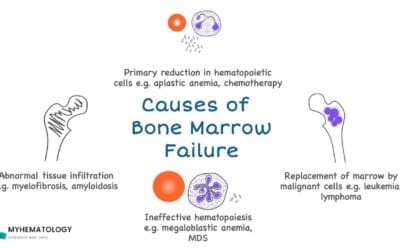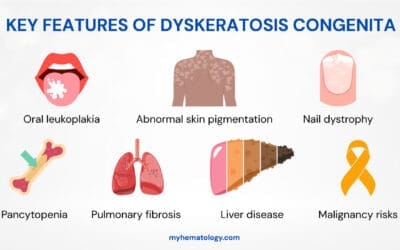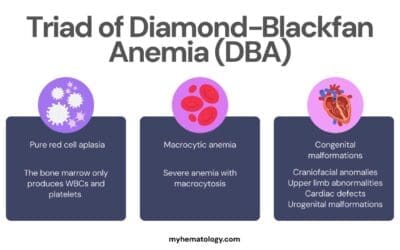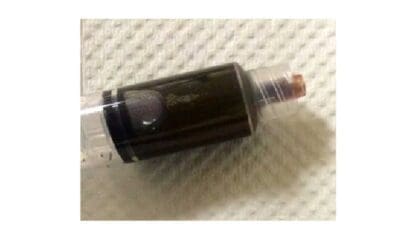Microangiopathic hemolytic anemia (MAHA) is a syndrome where red cells are sheared in small vessels, causing anemia and low platelets. Key feature: schistocytes.
Pancytopenia
Pancytopenia is a condition where a person has a low count of all three types of blood cells: red, white, and platelets.
Shwachman-Diamond Syndrome (SDS)
Shwachman-Diamond Syndrome: A rare genetic disorder causing pancreatic insufficiency, neutropenia, and skeletal abnormalities.

Microangiopathic Hemolytic Anemia (MAHA)
Microangiopathic hemolytic anemia (MAHA) is a syndrome where red cells are sheared in small vessels, causing anemia and low platelets. Key feature: schistocytes.

Pancytopenia
Pancytopenia is a condition where a person has a low count of all three types of blood cells: red, white, and platelets.
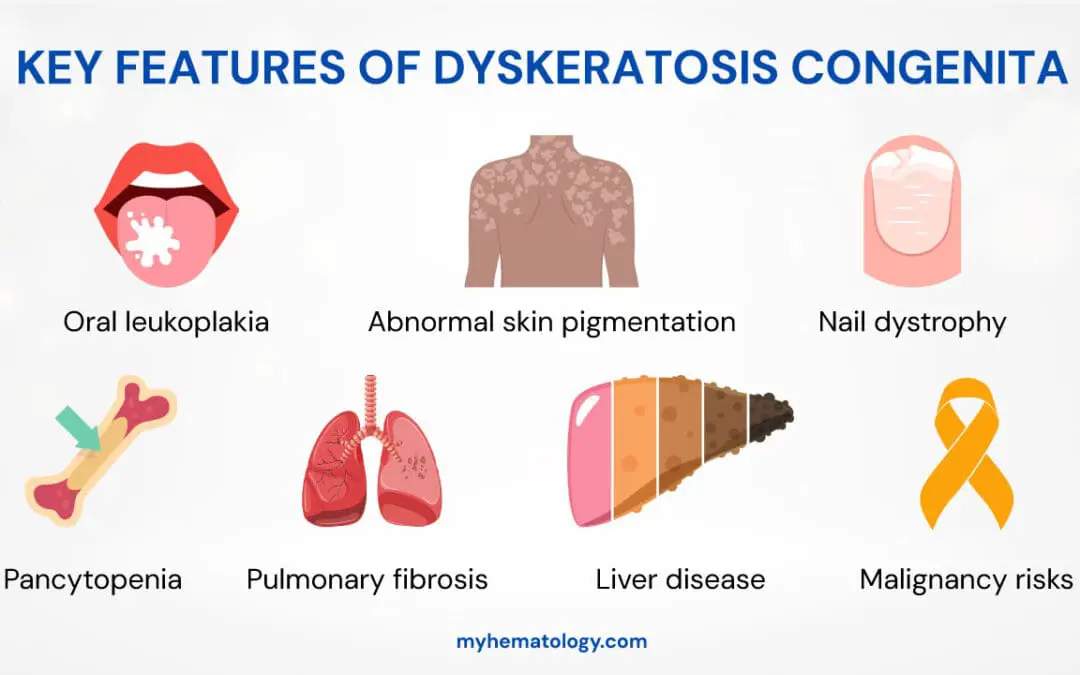
Dyskeratosis Congenita
Dyskeratosis congenita (DC) is a genetic disorder causing bone marrow failure and premature aging due to short telomeres.
Bone Marrow Failure
A comprehensive guide to bone marrow failure. Learn about its causes, symptoms, diagnosis, and treatment.
Dyskeratosis Congenita
Dyskeratosis congenita (DC) is a genetic disorder causing bone marrow failure and premature aging due to short telomeres.
Diamond-Blackfan Anemia (DBA)
A rare genetic disorder, Diamond-Blackfan anemia stops the bone marrow from making enough red blood cells.
Methemoglobinemia
Methemoglobinemia: a blood disorder where hemoglobin can’t carry oxygen. Learn its causes, diagnosis, and treatment in this overview.
Hydrops Fetalis
Explore hydrops fetalis: a severe fetal condition marked by excessive fluid accumulation. Learn its diverse causes, from genetic to infectious.
Causes of Menorrhagia
Menorrhagia is excessive period bleeding. Explore the causes, symptoms and the approach to diagnose it.

